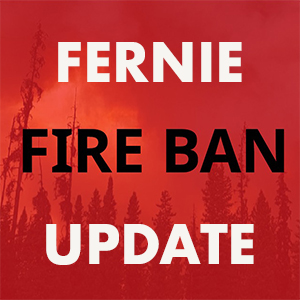Western Canada is in for a very warm summer this year as extended periods of hot and dry weather grip large areas of the country predicts AccuWeather Global Weather Center. The intense heat will focus on British Columbia, Alberta and Saskatchewan, worsening the drought and increasing the risk for wildfires.

“The worst drought conditions are currently across Alberta and northeastern British Columbia and we do not expect any significant relief through the summer,” said AccuWeather Senior Meteorologist Brett Anderson.
According to the most recent assessment of the drought conditions, large swaths of Alberta are in a moderate to severe drought, including the cities of Calgary and Edmonton. Some portions of southern Saskatchewan and northern British Columbia are also in a moderate drought.
“The summer will be slightly warmer than normal along the West Coast, thanks in part to the large area of above-normal sea surface temperatures over the northeast Pacific Ocean,” Anderson explained.
He added that the increasingly dry soil across the interior will enhance summertime warmth, resulting in an unusually high number of days reaching above 32 degrees Celsius.
To further compound the dryness, British Columbia’s snowpack is at a record low. Hydrologist Tobi Gardner of the River Forecast Center comments on the snowpack, “Basically the North just didn’t get a lot of snow this year. Province-wide, it’s been a warm winter and a very warm spring that really chewed away at the snowpack through April.”
Some areas of British Columbia are faring better than others, here is the snowpack data as of May 1st.

In addition to contributing to a worsening drought, the hot and dry conditions will also heighten the threat for wildfires.
“The 2016 wildfire season got off to a quick start and we expect another active season across the west,” Anderson said.
The Fort McMurray fire was an alarming start to the wildfire season, forcing the entire city to evacuate before the blaze engulfed the area.
Other fires are also burning across the region with more likely to start in the coming months due to a combination of lightning strikes, impending heat and dryness.
“Widespread smoke from these fires will be a factor through the summer months, resulting in lower air quality and an increase in hazy skies,” Anderson added.
Smoke from these wildfires will be carried thousands of miles downwind, potentially being seen in the skies over Eastern Canada and parts of the United States.
Lets be smart and keep our camp fires under control.
























